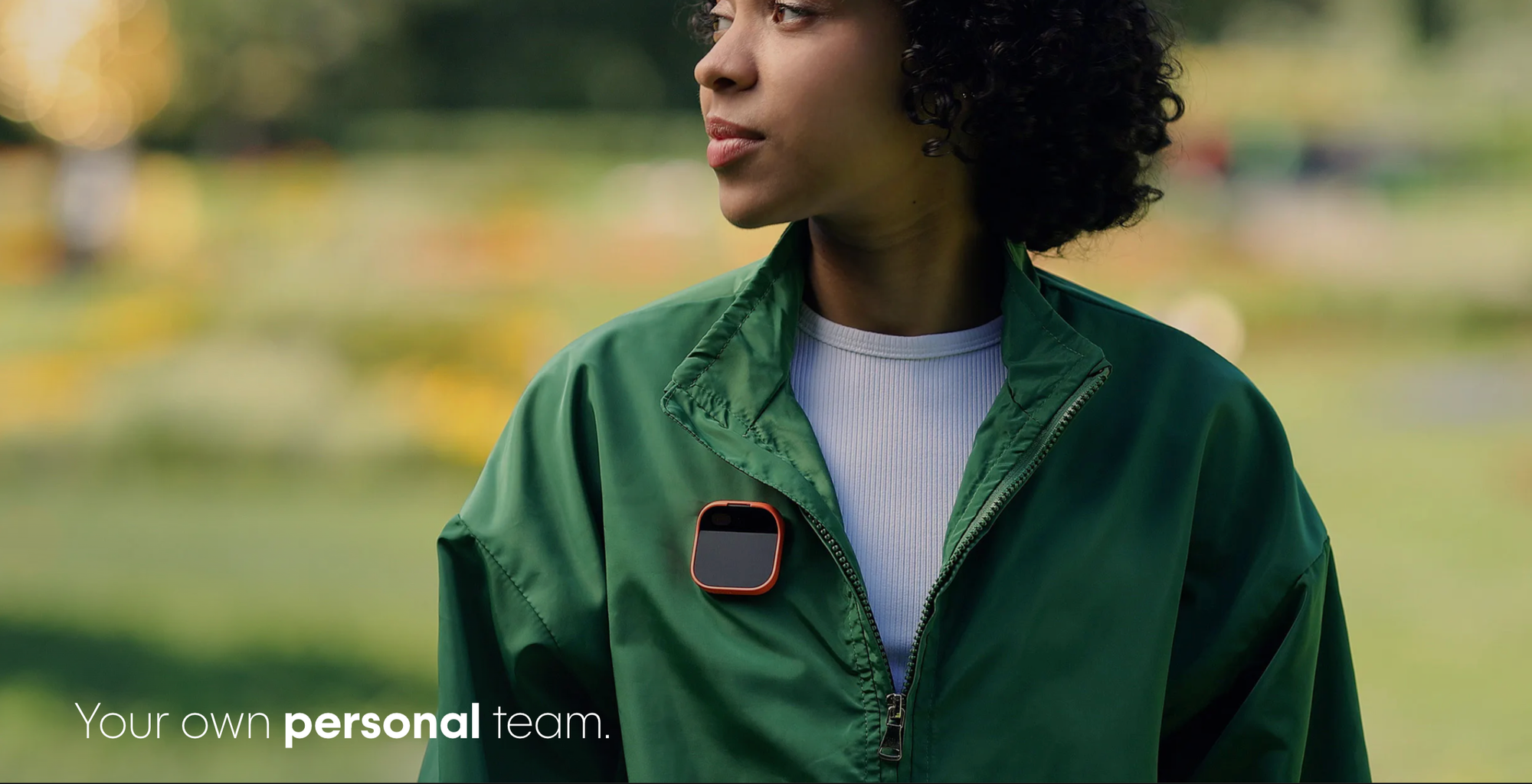Humane Ai Pin: Lessons on What Not To Do as a Co-Founder

The New York Times recently wrote an in-depth article about the Humane Ai Pin. If you have not heard of it, its an "AI" device you pin to your chest; you interact with it through voice commands and a laser that projects a 720p low-resolution display onto your hand. It costs $699 - $799 upfront, requires a $24/month subscription, and the battery life is about 4-hours. Here is a screenshot of the product captured from the Humane website:

The product is ridiculous on its face alone. The reviews have been savage; its the AI version of the Juicero. I could write a dissertation on why this product is atrocious and wonder aloud how they managed to raise $240 million in investor funds. Everything the Humane Ai Pin does could be done much better as an app on an iPhone – and no one is going to wear this dorky looking Star Trek cosplay gadget on their chest:
As of early April, Humane had received around 10,000 orders for the Ai Pin, a small fraction of the 100,000 that it hoped to sell this year, two people familiar with its sales said.
But this post is not about the Humane Ai Pin itself. What caught my eye about the New York Times articles are all the great "please do not do this" lessons for start-up founders (and – for that matter – for senior executives at any company).
8 Great Lessons of What Not to Do
- Do not build a cult
Many current and former employees said Mr. Chaudhri and Ms. Bongiorno preferred positivity over criticism, leading them to disregard warnings about the Ai Pin’s poor battery life and power consumption.
- Do not discourage questions or punish dissent
A senior software engineer was dismissed after raising questions about the product, they said, while others left out of frustration.
- Do not lie to yourself
The departures were a natural consequence of transitioning from creating a new device to sustaining it after its release, which he said appealed to “a different type of person.”
- Do not lie to investors
Before showing the gadget to prospective partners and investors, Humane executives often chilled it on ice packs so it would last longer, three people familiar with the demonstrations said.
- Do not put form over function
When employees expressed concerns about the heat, they said, Humane’s founders replied that software improvements reducing power use would fix it. Mr. Chaudhri, who led design, wanted to keep the gadget’s sleek design, three people said.
- Do not let "I want to generate revenue" make you release a product before its ready
Some employees tried persuading the founders not to launch the Ai Pin because it wasn’t ready, three people said.
- Do not leave critical roles unfilled
Others repeatedly asked them to hire a head of marketing. The role remained vacant before the product’s release.
- Do not focus on fund raising
Humane had enough money to release its device, people close to the company said, but was trying to raise more.
“We just want to build,” Ms. Bongiorno said.
Mr. Chaudhri added, “We have to look at how best we fund that.”
In earlier post I discussed the two mechanisms for funding a start-up: 1) bootstrapping; and 2) raising investor funds. In fairness to the Humane co-founders, a downside of [2] is the temptation and (sometimes) extreme pressure to "generate revenue as fast as possible", which can lead founders to cut corners and spend too much time and energy focusing on raising more investor funds – or placating investors – instead of doing the right thing for the business. I think this is the reason for lessons [6] and [8].
The other lessons I consider unforgivable, especially the "lying to investors" via cheap tricks like dunking your prototype in ice instead of being upfront that you're working on resolving hardware issues. Equally bad is building a company culture that is "only about happy sunshine and daisies" and fires people who dare ask hard questions. I strongly believe if they had built a culture around solving problems and answering the hard "internal to the company" questions, they would have created a better product and would have avoided the far more painful "...gathered their employees and encouraged them to brace themselves. The reviews might be disappointing, they warned."
As a co-founder of a start-up, you need to surround yourself with good, competent people who ask you the hard questions so that you create the best product you can. You want the hard questions to come from your employees and investors.... not from your customers.
And About that GenAI Stuff...
I said this post is not about the Humane Ai Pin itself – or by extension about GenAI – but I cannot help but quote this gem from the New York Times:
Its setbacks are part of a pattern of stumbles across the world of generative A.I., as companies release unpolished products. Over the past two years, Google has introduced and pared back A.I. search abilities that recommended people eat rocks, Microsoft has trumpeted a Bing chatbot that hallucinated and Samsung has added A.I. features to a smartphone that were called “excellent at times and baffling at others.”
The biggest mistake in my opinion about GenAI (and LLMs) is not realizing they are simply amazing digital parrots - there is no “I” in that “AI”. That doesn’t make it useless - on the contrary it’s super useful if you use it the right way. Right now though everyone is grabbing this “hammer” and trying to use it to pound screws into wood.
A post for another time.



